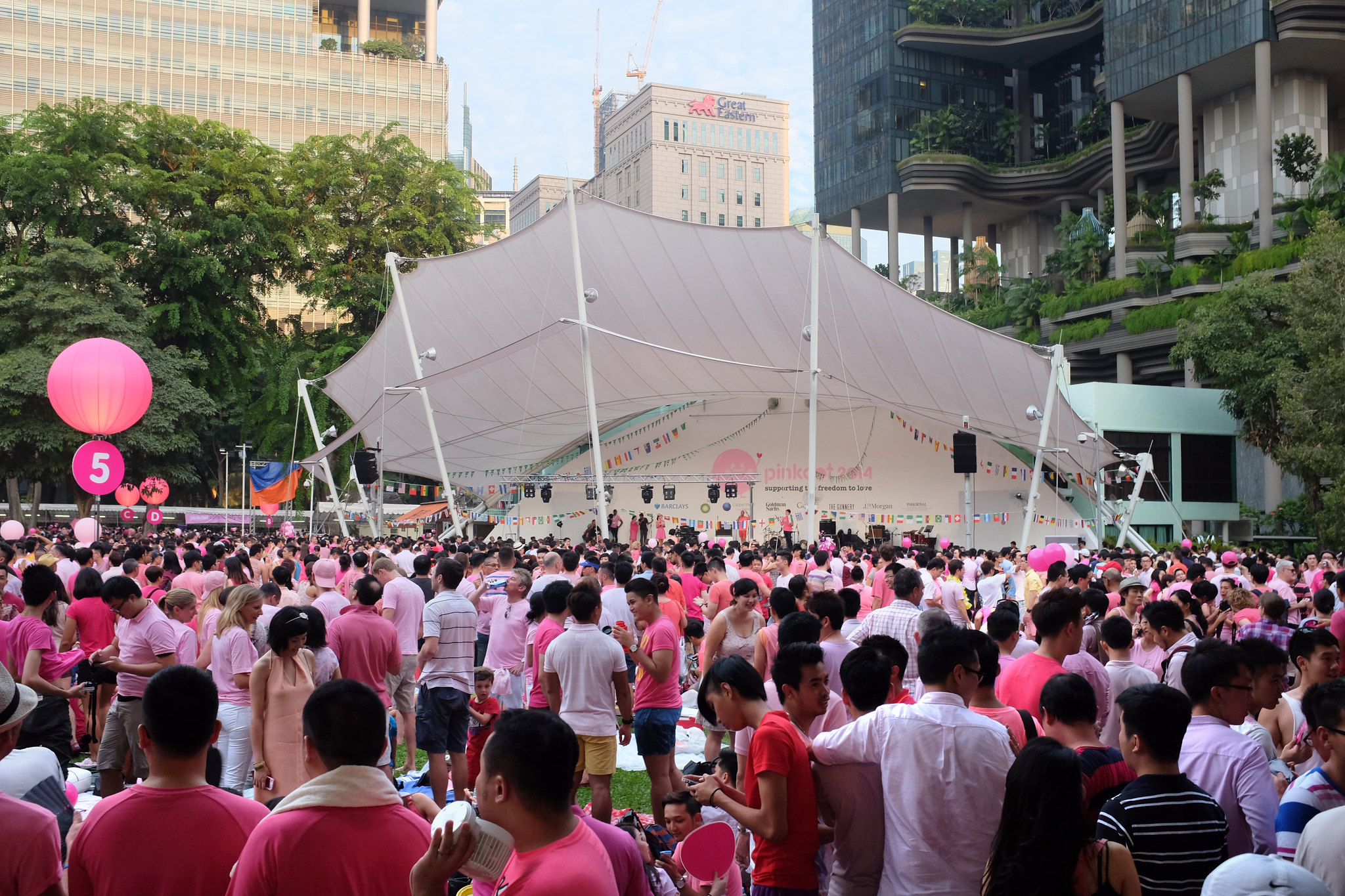“We’re the gay company, as gay as it gets”: The Social Enterprise of Fridae
December 1, 2023

Fridae, a Singapore-based gay web portal, was founded in December 2020, inaugurated in 2001, and has been a key player in the advocacy of gay rights in the country since. As homosexuality in Singapore is still illegal, Fridae, as many other gay businesses, faces a unique set of challenges. The chapter ‘“We’re the gay company, as gay as it gets”: The Social Enterprise of Fridae’ in Queer Singapore: Illiberal Citizenship and Mediated Cultures (Hong Kong University Press, 2012), by Professor Audrey Yue (NUS Department of Communications and New Media) and Dr Jun Zubillaga-Pow (musicologist and cultural historian), examines how Fridae functions as a social enterprise within legal restrictions.
The “Nation Party”, an annual protest party to celebrate the LGBTQ+ community in Singapore, was organised by Fridae between 2001 and 2004 until it was reportedly banned for gathering excessively large crowds. The first of its kind in Singapore, “Nation Party” received attention from the international press, which dubbed it the “Mardi Gras of Asia”. Fridae continues to set itself apart from other queer organisations in a similar fashion through its innovative amalgamation of business and activism. The website has also been presented the highest commendation from the National Arts Council from 2005 to 2008.
When starting out, Fridae took advantage of Singapore’s lax website regulations and registered as a Hong Kong-based website to avoid the state’s scrutiny. Furthermore, Fridae benefited from the rental subsidies and entrepreneurial incentives Singapore had implemented to support the creation of artistic night-time economies. Besides the website, the platform now manages its own media company, gay-related marketing, HIV programmes, and community development opportunities.
Analysing Fridae from the perspective of social entrepreneurial theory, the authors highlight existing concerns over the platform’s business ethics. Fridae’s efficacy in forming a community for LGBTQ+ individuals is often doubted as the platform combines its social services with commercial activities. As users maintain anonymity on the virtual space of Fridae forums, it is questionable how real such an online community truly is. On the other hand, Fridae aims to empower the gay community and supplement offline interaction rather than replace it.
Fridae’s innovative approach in running its organisation allows for the production and dissemination of knowledge about the gay community in Asia. Jobs created by the platform provide its employees, all of whom belong to the LGBTQ+ community, recognition as professionals in society. Through its entrepreneurial efforts, Fridae manages to continually nurture the gay community in Singapore.
Read the full chapter here.
